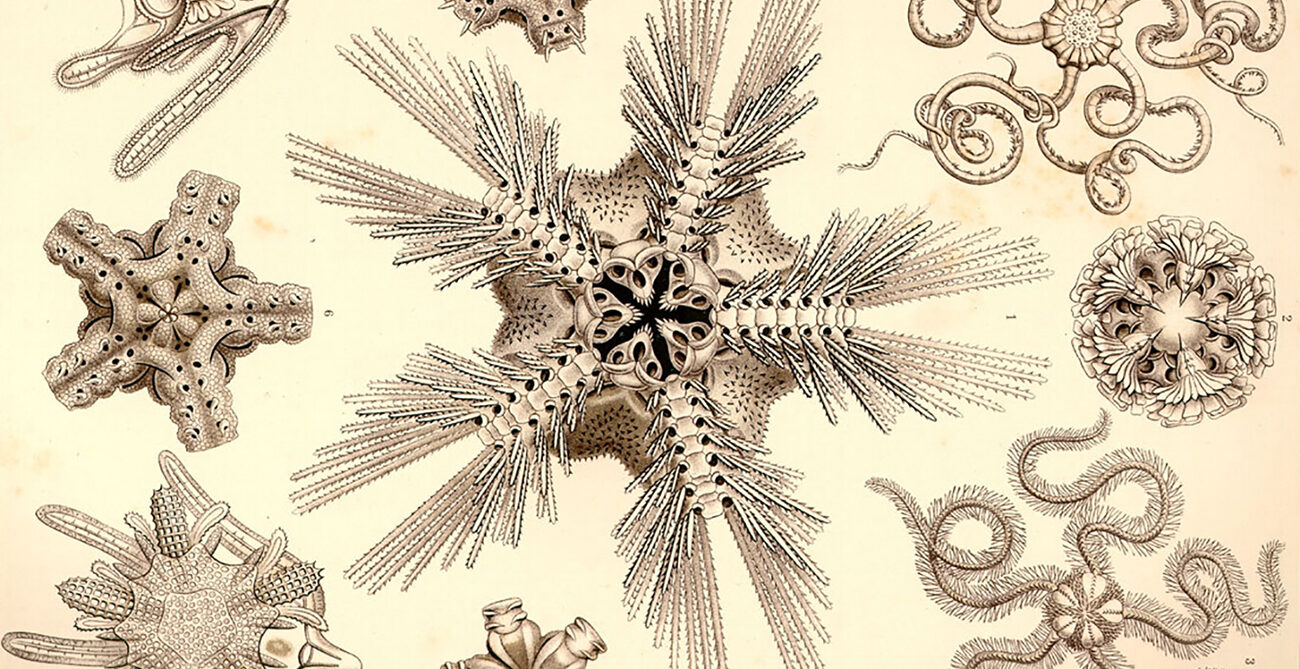
Deep Ocean Thinking
Thinking ecologically with the deep ocean and its long, slow-time relationalities requires placing time into our observations and responses.
Material-temporal matters are profoundly consequential in these worlds. Some of the water at the bottom of the ocean hasn’t seen sunlight for a thousand years. The seafloor sediment is constituted by particles slowing falling from the surface over time periods beyond our human scale. Seabed manganese nodules form at the rate of about a millimetre every million years. They’re home to vulnerable micro sponge communities and offer important substrates for many others. The pace of being in these sunless realms is entirely different to ours but can be snuffed in the flash of a miner’s spotlight or under the crush and vacuum of their machines. The warming effects of climate change are reaching deeper into the ocean’s heart – and the ocean’s waters are archival, so the deeper the reach of these temperature changes, the longer it will take for their effects to transition out. The intrusion of toxic runoffs and plastics will also be harbored in the ocean archive for some time. All these material changes stream cumulatively through the ocean and marine communities are incredible sensitive and exposed to them.
On a very practical level, we have only recently begun to find out about deep living worlds and long-range systems. But of course, where ‘discovery’ goes, exploitation tends to follow. The commercial interest in mining the minerals of the seabed and extracting the genetic material from the water column give us all a good deal to be concerned about. As does the annual hauling out millions of tonnes of slow-growing fish beings. The ambitions of extractivecapitalism seem to always be reliably freighted with a sense of immediacy and impatience.
But we desperately need to pause our industrial reach into the ocean so that we might better understand the profound implications for ocean lives and life-ways. If the words ‘slow down’ and ‘take fewer’ are dreaded, ‘moratorium’ is kryptonite for the extractivists – so they will defy any calls for pause or reduction in ‘productivity’ with every effort they can muster. And yet there are so many other less ecologically harmful options that can be amplified to provide the world’s materials and nutrition. The global economic order dominates our relationship with the ocean and it is rapacious and suffuse with haste – we need to proliferate alternatives. For a start, foregrounding those already existing relations cultivated over generations within Indigenous communities. But also imagining the conditions for new relations that take into account how multiple temporalities inflect the impact of our industrial incursions on deep living marine worlds. Thinking relation and time together allows us to respond better to the cumulative pasts of us already layered into the ocean, and of the ocean transitioning into unknowable futures.
Interview with Susan Reid by Sophie Chao, More Than Matters
For further reading, see Susan’s chapter Solwara 1 and the Sessile Ones published in the edited volume Blue Legalities: The Life and Laws of the Sea.

